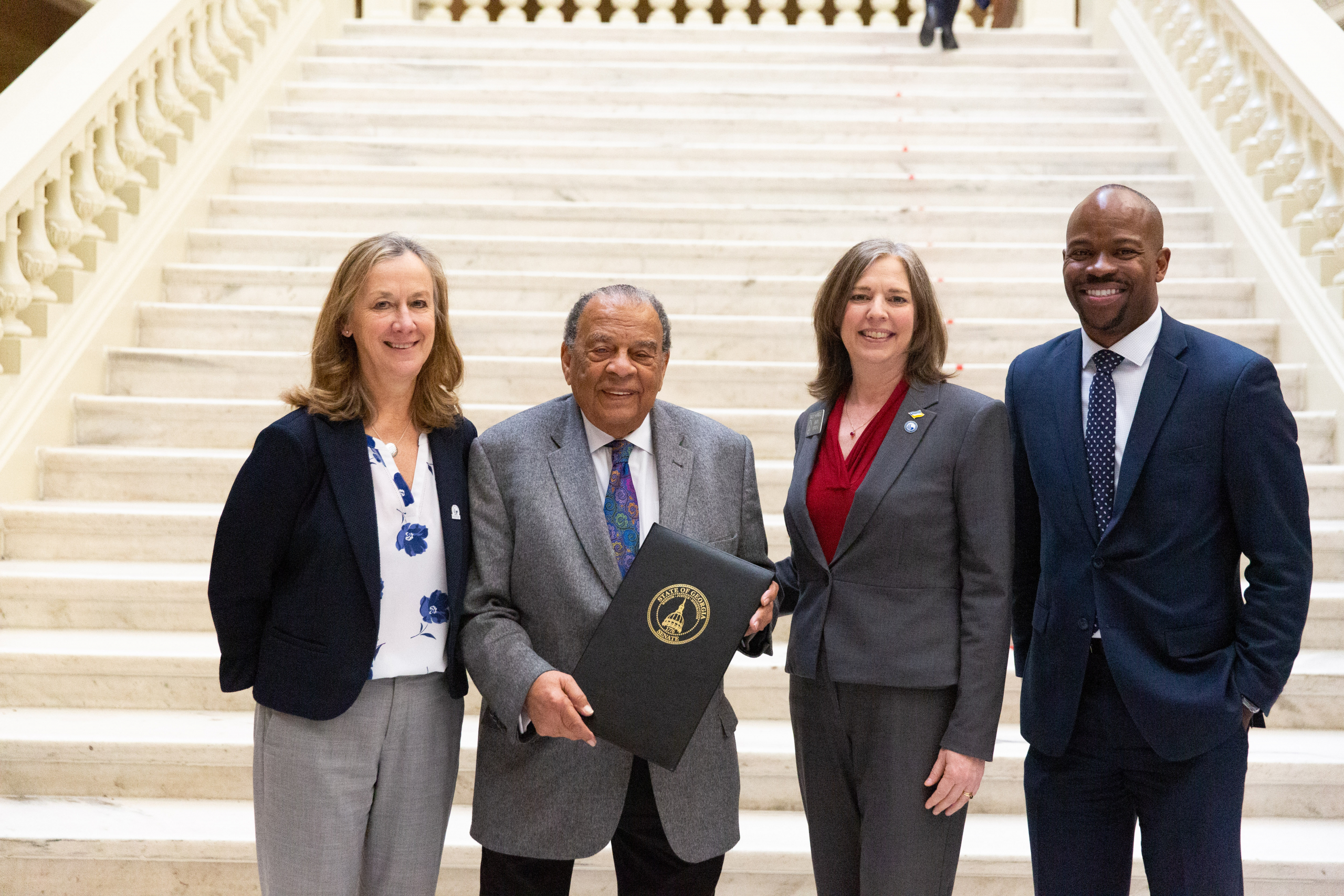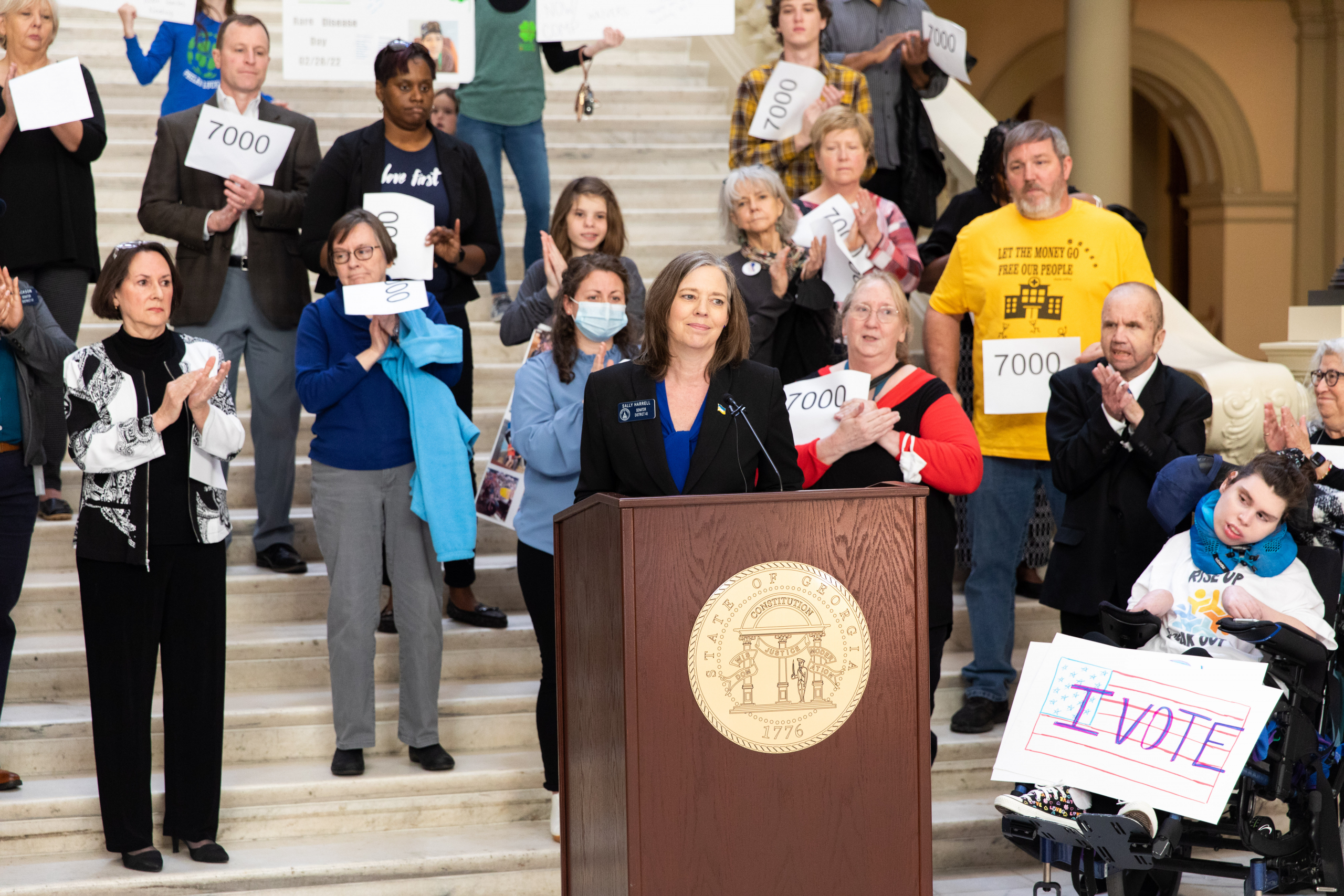Driving Toward the Finish Line
Who’s In the Driver Seat?
Sine Die is one week away and major proposals still hang in the balance. So, you might ask, “Who’s in the driver’s seat?” So far it’s been Governor Kemp who put the pedal to the metal, accelerating his campaign platform. But now it’s clear that the Speaker of the House has his hands firmly on the wheel and will be the one who determines which bills make it to the finish line. And much of that depends on what happens with his mental health bill, HB 1013.
Driving in the Slow Lane: Bills Get a Yellow Light
Starting late last week, the number of House bills passing the Senate slowed significantly. My guess is that Speaker Ralston gave a yellow light to Senate bills until his mental health bill passes the Senate, and that the Senate responded by not passing House bills. It is typical at this point in the session for the House & Senate to get rather testy with one another, but fortunately, it doesn’t usually rise to the level of road rage.
HB 1013 is moving in the Senate, just not as quickly as it did in the House. Unlike the House members who are much more reticent to question their Speaker’s bill, the Senate is giving it more careful scrutiny through an appointed subcommittee. The subcommittee is busy making clarifying changes while leaving the substance of the bill intact. Although the Speaker might like a rubber stamp on his bill, the system is designed so that bills can be improved every step of the way.
Unfortunately, this week I began to see protesters brandishing signs saying, “Stop HB 1013,” which surprised me because the Speaker’s mental health bill has been such a good example of a bi-partisan effort. Turns out they’ve decided the bill protects pedophiles, increases crime, takes people’s guns away, etc. I have to feel a bit sorry for some of my Republican colleagues for having to deal with these naysayers, except that a few of them ARE them.
A Bill on a Wild Ride: Paying Workers What they Deserve
This week, I took a very interesting journey with SB 610, my bill to ensure we don’t fall behind paying the workers who care for intellectually and developmentally disabled (IDD) adults.
Picking Up Speed. Early in the week, I presented my bill to the House Human Relations & Aging Committee where it got a unanimous green light. It was a rare kum-ba-yah moment as several people spoke of the long-time need for this bill, and Committee Chair Jesse Petrea, who has years of professional experience with home and community-based care, enthusiastically embraced the bill. Chairman Petrea even agreed to carry the bill in the House, which means he will be the one to present it on the House floor.
Navigating Foreign Terrain. Midweek, I ventured into the House Rules Committee for the first time, a necessary pit stop to get SB 610 to the House floor. When I stopped by to visit with the House Rules Chair the day before, he told me I had a minute-and-a-half to present my bill. So in the Rules Committee I kept my presentation brief, but the Chairman, in a teasing way, scolded me for going over my allotted 60-seconds. Evidently the 60-second rule is a big deal in House Rules. Now I know.
Making a U-Turn. The very next morning, Rep. Scott Holcomb texted me that SB 610 got sent back to Committee, so I ran over to the House to find out what was going on. Unfortunately, that morning I had forgotten my Senate name badge, so the House Doorkeeper wouldn’t let me in. I showed him my security badge with my name, photo and the word, “Senator” but that wasn’t good enough. So I had to run over to the Secretary of the Senate’s office to pick up one of my “extra” name badges they keep on hand just for these situations. I finally got in.
Catching a Ride: It turns out my bill was sent back to Committee because they want to attach two other bills to it before final passage. It’s very common at the end of session for legislators to look for “vehicles” or “riders” to shortcut the process. For this to work, the “vehicle” bill must be in the same code section and the attached bill has to be shorter than the original bill. This is because the attachment technically should be an amendment — not an entirely new bill.
Fork-in-the-Road Decisions: I found myself at a fork-in-the-road. They could attach bills to my bill that I don’t agree with, and my name would be forever tied to bad laws, or they could attach good bills and I’d forever get credit!
I spent the rest of the day and the weekend trying to learn as much as I could about these two amendments. Turns out one is good and one has very bad unintended consequences. So I reached out to various mental health groups and the House Committee Chair for help. We will all meet together on Monday morning, but the House Committee Chair assured me this weekend he will oppose anything that jeopardizes my bill.
I’ll catch you up on how the story unfolds next week. But I’ll say one thing now. This is actually what I love about politics — analyzing policy, reaching out to people and groups who care about the issues, building relationships and negotiating across party lines, and ultimately, standing up for what’s right.
Driving With Their Eyes Closed and Asleep at the Wheel: Another Bad Voting Bill
Despite the Governor’s promise of no significant voting bills this session, we now have a new 40-page voting bill. HB 1464 gives the GBI the authority to investigate voter fraud (without being requested by the Secretary of State). It makes ballots public record, making it easier for anyone to examine them for any reason. It requires that private grants made to local election offices be approved by the State Elections Board to determine partisan intent and allows the State Elections Board to reallocate the funds anywhere in the state however it sees fit.
In Committee, the bill authors skirted the questions of committee members. I expressed concern that “When you call a surgeon, you get surgery. When you call the GBI, you get a crime.” Having law enforcement involved in what are often misunderstandings or mistakes could blow these cases out of proportion. But the bill authors were unconcerned, as this is likely their intent.
As the Democrats questioned the bill author, I noticed that two of our Republican Committee members had fallen asleep. One was snoring. It has been a long, hard session and the Senate Ethics Committee almost always meets at the crack of dawn or at the end of a long legislative day. But it was clear that these Senators had already made up their minds about HB 1464 without having to tune into the debate. Hopefully they’ll stay awake for public testimony at 4 pm on Monday.
Kicking into High Gear: The FY 2023 Budget
The Senate hit a major milestone this week when it passed the 2023 budget. Next year’s budget includes things everyone can feel good about like long overdue raises for teachers and state employees, expanded Medicaid coverage for new mothers, and cost of living adjustments for state retirees.
I decided early in the session to focus my work on the budget process, and the budget we passed reflects that work. It eliminates the “temporary” Special Institutional Fee that the university system has charged students since the Great Recession, a recommendation that resulted from the University Study Committee I passed last year. And it includes funding for more than 500 community support Medicaid waivers — five times more than what was originally proposed by the Governor. This increase would not have happened without the hard work of constituent Philip Woody. Whenever I needed Philip to tell his story to a legislator, he’d drop everything and come down to the Capitol.
On Friday I learned that the Senate budget included some of the money I had requested for a new satellite campus of Piedmont Technical College in North Dekalb. But since the House had not put in any money, and partial projects cannot be funded, I had to scramble over to the House to enlist Representative Scott Holcomb to help me convince House Appropriations Chair Terry England to include money in the House budget.
The final budget, including whether or not we get the Technical School funding, will come down to the Conference Committee made up of six members of the House and Senate, who will work out budget differences. It will be a nail biter.
“Are We There Yet?” The City of North Decatur
While many cityhood bills moved through the process this year, there were not enough votes within the local DeKalb delegation to move forward with the City of North Decatur. I will say, however, that the conversations moved forward and I believe we will be able to hit the ground running at the beginning of next session. This will give time for the community to review the City Charter, which outlines the city governance structure, and the City Map, including city boundaries and city council district lines.
Save the Date — Arrival Time
Please join me and several of my House colleagues for a virtual Town Hall meeting, tentatively scheduled for the evening of Thursday, April 6th. It has been a whirlwind of a session, but I look forward to telling you about the final outcomes and answering your questions about what it all means for you. Stay tuned for more details.


